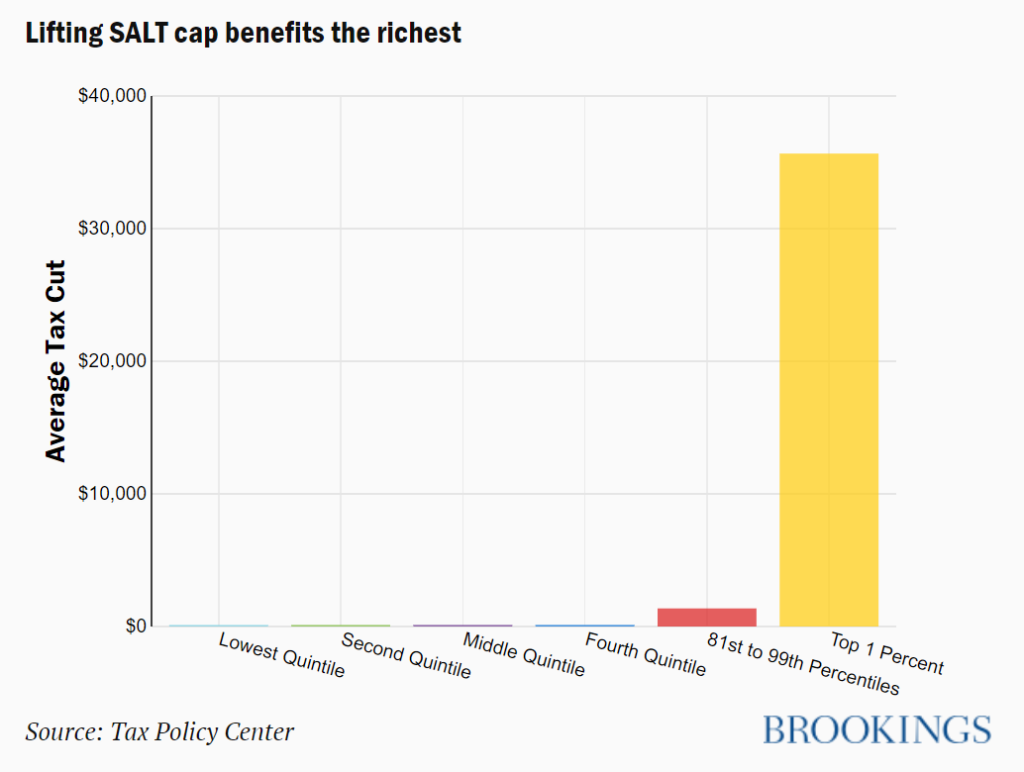Graphic:

Excerpt:
We have argued against lifting the $10,000 cap in the New York Times, the Washington Post, and in a short analysis for Brookings. Our case is quite straightforward: the benefits of repeal would flow to the rich and affluent, who now have a disproportionate influence on the Democratic Party. To be specific, the top 1 percent would get an average tax cut of over $35,000. The middle class would get an average tax cut of about $37 (note that our analyses here relate to full repeal, since we do not know yet what alternative Sen. Sanders has in mind):
Author(s): Richard V. Reeves, Christopher Pulliam
Publication Date: 24 June 2021
Publication Site: Brookings





